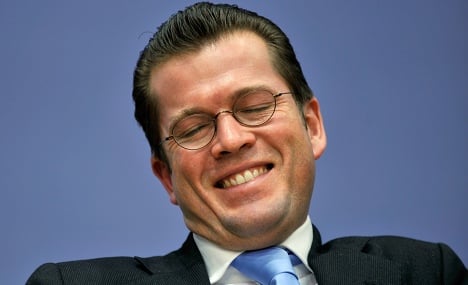In a new series on The Local, readers are invited to comment on a current topic, something that keeps coming up in conversation or simply a subject that engages, outrages or deserves a broader airing.
Guttenberg was once one of Chancellor Angela Merkel’s most popular and promising cabinet ministers. But he got caught up in a nasty plagiarism scandal earlier this year, eventually resigning on March 1 after being accused of lifting at least 23 passages in his dissertation on constitutional law.
But to some the real scandal may be how he managed to escape criminal charges. Prosecutors said they closed their case against Guttenberg this week after he donated €20,000 to a children’s cancer charity.
The practice is actually quite common in Germany’s criminal justice system. Typically only those suspected of very minor crimes are invited to make donations in lieu of prosecution – and the poor are expected to make smaller ones than the rich.
Experts generally seem to see no problem with the arrangement.
Plagiarism expert Volker Rieble, for instance, told the Süddeutsche Zeitung that it was “appropriate,” because other writers haven’t really faced economic damage from Guttenberg’s actions.
But what do you think? Did Guttenberg’s punishment fit the crime? Is it fair that he can now say he has no criminal record?
Registered users at The Local may add their comments in the field below. If you haven’t signed up yet, you can do so here – it’s free and only takes a moment.



 Please whitelist us to continue reading.
Please whitelist us to continue reading.
Member comments